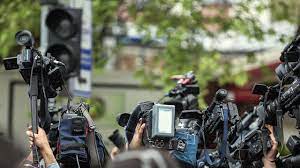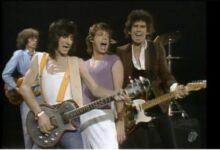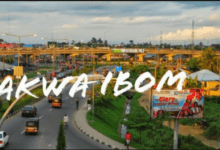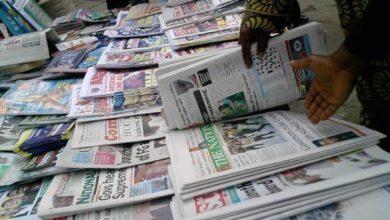
The Role Of Media In Nigeria’s Democracy
The Role Of Media In Nigeria’s Democracy- In Nigeria, the media plays a crucial role in the country’s democracy by serving as a means of communication and a source of information for the public. It helps to promote transparency and accountability in government, as well as to expose corruption and abuse of power. The media also provides a platform for the expression of diverse viewpoints and the debate of important issues affecting the country.The Role Of Media In Nigeria’s Democracy
Read Also: Role of Vocational and Technical Education in Nigeria
👉 Relocate to Canada Today!
Live, Study and Work in Canada. No Payment is Required! Hurry Now click here to Apply >> Immigrate to CanadaThe media in Nigeria operates in a challenging environment, with numerous threats and challenges to its independence and freedom of expression. The government has been known to exert pressure on the media and to restrict access to information, particularly on sensitive issues. There have also been instances of violence and intimidation against journalists, as well as censorship and self-censorship. Despite these challenges, the media in Nigeria remains an important check on the power of government and a vital component of the country’s democracy.
What Is Media?
Media refers to the various forms of communication that are used to inform and educate the public. This includes traditional media, such as television, radio, and print media (newspapers and magazines), as well as digital media, such as websites, social media platforms, and online news outlets.
In a democracy, the media plays a vital role by serving as a means of communication between the government and the public, as well as between different groups and people within the society. Media can be used to transmit news, entertainment, education, and other types of information to people all over the world. It can also be considered a form of communication that helps to connect people and facilitate the exchange of ideas and information.
Read Also: The Roles of the Government in Entrepreneurship Development in Nigeria
Forms of Media In Nigeria
There are several forms of media in Nigeria, including:
- Print Media: This includes newspapers, magazines, and other printed materials that are distributed to the public.
- Broadcast Media: This includes television and radio stations that transmit news and another programming to the public. Information Guide Nigeria
- Online Media: This includes websites, blogs, and social media platforms that provide news and information to the public.
- New Media: This includes newer forms of media such as podcasts, video-sharing platforms, and online streaming services.
What is Democracy?
Democracy is a form of government in which the power to make decisions is held by the people, either directly or through elected representatives. It is a system of government in which the people have a say in how they are governed, either directly or through elected representatives. The term comes from the Greek words “demos,” meaning “people,” and “Kratos,” meaning “power.” JAMB Portal
In a democratic system, the people have the right to elect their leaders and participate in the decision-making process. This may be through voting in elections, participating in public discussions and debates, or joining political parties or interest groups.
Read Also: The Role Of Social Studies In Nation Building In Nigeria
👉 Relocate to Canada Today!
Live, Study and Work in Canada. No Payment is Required! Hurry Now click here to Apply >> Immigrate to CanadaThe Media and Nigeria’s Democracy
The media has played an important role in Nigeria’s democracy since the country gained independence from Britain in 1960. From the beginning, the media has served as a means of communication and a source of information for the public, helping to promote transparency and accountability in government and to expose corruption and abuse of power.
Throughout Nigeria’s history, the media has faced numerous challenges and threats to its independence and freedom of expression. During the military dictatorships of the 1960s, 1970s, and 1980s, the media was heavily censored and controlled by the government. In the 1990s, after the restoration of democracy, the media began to enjoy greater freedom and independence, but it continued to face threats and intimidation from the government and other powerful actors. NYSC Portal
In recent years, the media in Nigeria has faced new challenges with the growth of digital media and the proliferation of social media platforms. These platforms have provided new avenues for the expression of diverse viewpoints and the debate of important issues, but they have also made it easier for the government to exert control and censorship and for misinformation to spread. Despite these challenges, the media in Nigeria remains an important check on the power of government and a vital component of the country’s democracy.
Read Also: The Role Of Code Of Conduct Bureau In Nigeria
The Role of Media in Nigeria’s Democracy
The media plays a vital role in Nigeria’s democracy by serving as a means of communication and a source of information for the public. It helps to promote transparency and accountability in government and to expose corruption and abuse of power. The media also provides a platform for the expression of diverse viewpoints and the debate of important issues affecting the country.Romantic Love Messages
In particular, the media serves several roles in Nigeria’s democracy which include;
- Monitoring and Reporting on Government: The media serves as a watchdog for the public, monitoring the actions of the government and reporting on its activities. This helps to ensure that the government is accountable to the public and that it is transparent in its decision-making process.
- Providing a Platform for Debate and Discussion: The media provides a forum for the discussion and debate of important issues affecting the country. It allows different groups and individuals to express their viewpoints and engage in constructive dialogue.How I once involved Bola Ajibola on Bakassi – Segun Showunmi
- Educating the Public: The media serves as a source of information and education for the public, helping to increase awareness and understanding of important issues and events.
- Exposing Corruption and Abuse of Power: The media helps to expose corruption and abuse of power within the government and other institutions, helping to promote transparency and accountability.
- Holding Power to Account: The media serves as a check on the power of government and other powerful actors, helping to ensure that they are held accountable for their actions.
- Promoting Transparency: The media helps to promote transparency in government and other institutions by providing information and holding them accountable for their actions.
- Protecting Freedom of Expression: The media helps to protect freedom of expression in society by providing a platform for the expression of diverse viewpoints and ideas.
- Providing a Diverse Range of Perspectives: The media helps to ensure that a diverse range of perspectives is represented in public discourse, promoting a more inclusive and democratic society.
- Facilitating Communication: The media serves as a means of communication between the government and the public, as well as between different groups and individuals within a society.
- Promoting Social Change: The media can play a role in promoting social change by highlighting important issues and providing a platform for the discussion and debate of solutions.Good Morning Love Message
Read Also: The Role Of Primary Health Care In Nigeria
Conclusion How To Register Wema Bank Transfer Code
Media plays a vital role in Nigeria’s democracy by serving as a means of communication and a source of information for the public. It helps to promote transparency and accountability in government and to expose corruption and abuse of power. The media also provides a platform for the expression of diverse viewpoints and the debate of important issues affecting the country. Despite facing numerous challenges and threats to its independence and freedom of expression, the media in Nigeria remains an important check on the power of government and a vital component of the country’s democracy.
Check JAMB RESULT
Check and Confirm: How much is Dollar to Naira







